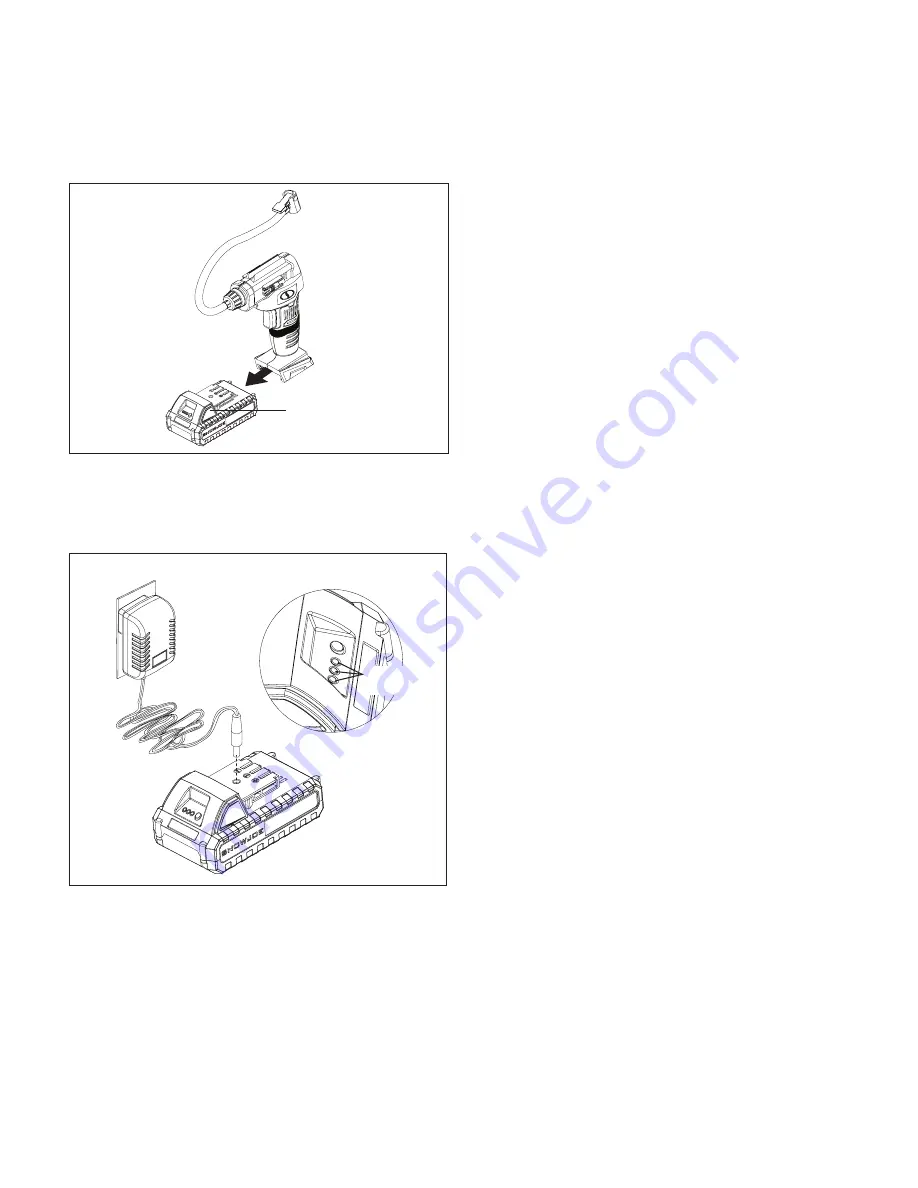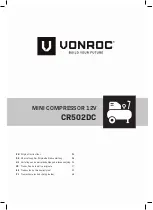
9
Charging the Battery
1. Push the push lock button on the battery to pull the
battery pack out from the battery compartment (Fig. 1).
2. Check that the mains voltage is the same as that marked
on the rating plate of the battery charger. Then, plug the
charger adapter into an appropriate AC power outlet.
Connect the charger plug into the charge socket of the
battery to start charging (Fig. 2).
3.
The battery will take approximately 4 – 5 hours to charge.
The battery indicator LEDs will twinkle and illuminate one
by one during the charging process. Unplug the charger
immediately when the 3 LEDs are all illuminated.
m
CAUTION!
FIRE HAZARD. When disconnecting the
charger from the battery, be sure to unplug the charger from
the outlet first, then disconnect the charger from the battery
m
WARNING!
This charger does not automatically turn off
when the battery is fully charged. Please take care not to leave
the battery plugged into the charger. Switch off or unplug the
charger at the mains when charging is complete.
4.
Timely recharging of the battery will help prolong the
battery's life. You must recharge the battery pack when
you notice a drop in the equipment's power.
IMPORTANT! Never allow the battery pack to become fully
discharged as this will cause irreversible damage to the
battery.
Operation
m
WARNING!
Always wear safety goggles when operating
the air compressor. Failure to do so could result in objects
being thrown into your eyes, resulting in possible serious injury.
m
WARNING!
Do not use any attachments or accessories
not recommended by the manufacturer of this air compressor.
The use of attachments or accessories not recommended can
result in serious personal injury.
m
WARNING!
The air compressor is capable of inflating
to 120 PSI, 8.27 BAR, or 827 KPA max. To avoid over inflation,
carefully follow instructions on items to be inflated. Never
exceed recommended pressures. Use only recommended air
handling parts acceptable for pressure not less than 120 PSI.
m
CAUTION!
Do not leave items to be inflated unattended
while air compressor is in use. These items can burst and
could cause serious injury.
m
WARNING!
The air compressor is not designed to
inflate large volume items such as boats, pools, rafts, large air
beds, etc. It is also not designed for commercial application.
m
WARNING!
Since the pressure display is not calibrated,
and is therefore not binding for exact values, tire pressure must
be checked using a calibrated measuring device before driving
a vehicle with vehicle tires inflated with the air compressor.
m
WARNING!
Risk of injury. Do not direct air stream at
body.
m
WARNING!
Hot surface. To reduce the risk of burns, do
not touch metal clamps of hose assembly.
Fig. 1
Push button
Fig. 2
Battery
indicators






































